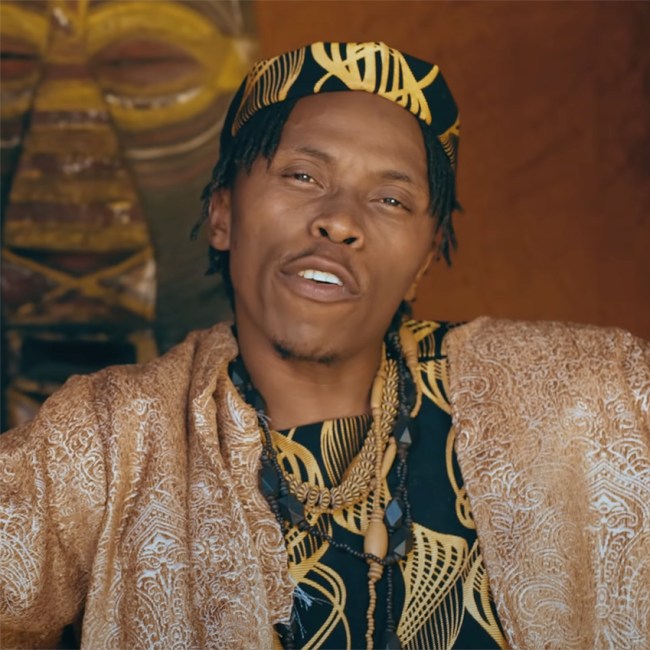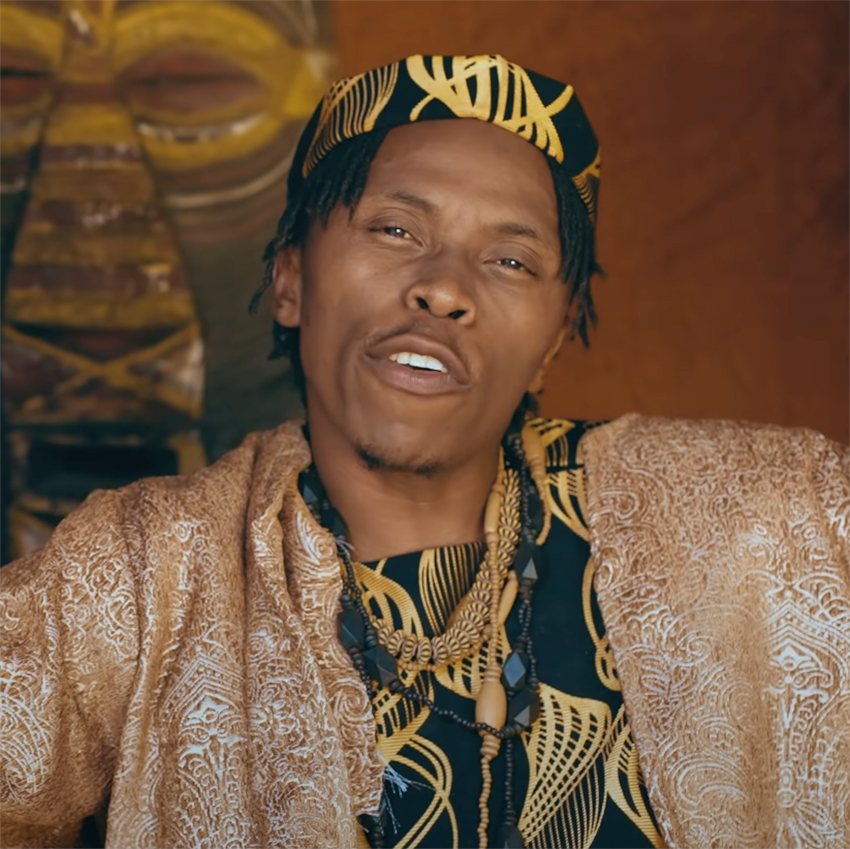
African music never sleeps, and neither does Leonel.
Ans-T Crazy – “Pause”
From Guinea-Conakry: Ans-T Crazy is an advanced skills craftsman. He’s been a part of the Francophone Afropop scene for a while now, but he has always brought interesting sonic combinations, influences and sensibilities. For “Pause”, he takes it up a notch; taking advantage of his knowledge of global electronic trends, he fuses his trademark Guinean beats with programmed drums more reminiscent of European club music. The punctuated electric guitar and the balafon-synths are still there though, and his heavy auto-tune provides a beautiful contrast with the hook’s background chants. That Afro-techno coda with the flute solo shows that he likes to spoil us with greatness.
Rémy Adan – “Là-bas”
From Ivory Coast: What first caught me off guard about this tune was the drums; the way those loud-as-hell snares underline the soukous bell and how they work in conjunction with the bass in every start/stop and break are magnificent. But it was Rémy’s energetic delivery and the sheer joy this provoked in me was the thing that made me stick around, a lot, these past few days. “Là-bas” is full of classic breaks and accents, as nearly every instrument is organic, but it really comes down to that rush of endorphins you get all the way through. Exuberance is beauty.
Christopher Muneza – “Nibido”
From Rwanda: Christopher Muneza’s “Nibido” is a true revelation in terms of production. I’ve always really liked when afropop is bathed in and nurtured by the more exploratory and atmospheric elements of r&b, but this example of sound layering exquisiteness is amazing. Muneza’s voice, especially in the pre-choruses, when he shows off his high register, is a velvety caress, which works perfectly with the manipulated samples and cottony synths. That guitar sample at the beginning sounds like a riff from the American South and goes great with the clave bell. The Rwandan scene seems to be very committed to high-quality pop, and boy, do they deliver.
Zuchu – “Mwambieni”
From Tanzania: Zuchu is one of those artists who always finds a way to cover everything on a stylistic level, and everything works out for her. For “Mwambieni”, the Tanzanian artist dresses up and gives us a piece of rumba that is sonically very close to the golden age of the genre — think late 60s all the way to the 70s in the Congo and East Africa. The organic brass phrasing extends in the same way as a horn line in salsa, but the percussion reference the Cuban rumba of even earlier times. On top of all this, Zuchu gives us some melodic runs worthy of Celia herself, which is all the more refreshing to hear in Swahili.
Olley & Neville Sigauke – “iDlozi” (featuring Dj Jabs)
From Zimbabwe: This is the kind of thing I look for every week in the South African scenes in particular. “iDlozi” contains the shekeres and the lively pace of amapiano, the tresillo clave typical in afropop, and also introduces us to an instrument such as the mbira, a thumb piano traditional to the Shona people, but also widely used among the rest of the Bantusphere. The responsible for bringing this instrument is Neville Sigauke, a Zimbabwean artist who incorporates the mbira as the foundational component of his sound. He’s usually a rap spin-off artist, but this foray into a more electronic style is a complete success.

